Among British surnames, there are two families whose surnames spread in early times far beyond the location which gave rise to them. One of them is Pickering, which was already found in most parts of England by about 1400. This seems surprising when one considers the size of the town of Pickering, but if a junior line of a prominent local family took the name “de Pickering”, if it found favour with another prominent family or if it made judicial marriages, it can be assumed that feudal lordship accounted for the dispersal of the name. By the 16th century Gilbert Pickering was an important landowner in Northamptonshire, Robert Pickering had already bought up his exiled lord’s holdings in Barlby, Sir William Pickering of Oswaldkirk was a favourite of Queen Elizabeth I and Sir John Puckering of Flamborough was, if not a favourite, her very efficient Keeper of the Great Seal.
The families that took the names Pickering and later Puckering are for the most part genealogically too distant to be considered related, but a number of broad clusters have been identified during the time period c26,000 BC to c20,000 BC. Taking as a starting point c44,000 BC, the migratory path towards Europe followed by the two Pickering clusters which belong to the I- and J- haplogroups passed through the basin formed by the Tigris and Euphrates rivers in present day Iraq. However, the majority of the Pickering clusters transitioned from the K- to the P- and finally to the R- haplogroup, their migratory paths taking them even further afield, via the Far East and the Central Asian steppes.
Migratory Paths of the Pickering Clusters at circa 26,000 BC to circa 20,000 BC
 |  |  |
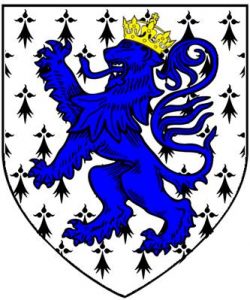
As seen above and shown in the the Pickering Haplotrees table below, the majority of Pickering families shared the haplogroup R-M173 around 20,000 BC. By c15,000 BC a subgroup had branched off which would eventually become the three families that emigrated to the Thirteen Colonies in the first half of the 1600s: the Pickerings of Portsmouth, NH, the Pickerills of Northumberland County, VA, and the Pickerings of Salem, MA. Their descendants are very closely related, with mutations only appearing in c1400 AD, and they probably stemmed from the Pickerings of Northamptonshire, who are traditionally considered a sub-branch of the Pickerings of Killington, though Y-DNA testing does not bear this out. The latter two families share the same arms, so it is possible that the descent passed through a female at some point, either deliberately or not. (See the Pickerings of Old England and New England on the table below.)
The other eight R-M173 families remained genetically identical until c3000 BC, when they shared the haplogroup R-L151. However, by c2000 BC they had gone their separate ways, though the two Puckering families remained identical until as recently as 1800 AD, when the first mutation occurred, suggesting that all persons bearing this variant of the Pickering name are related.
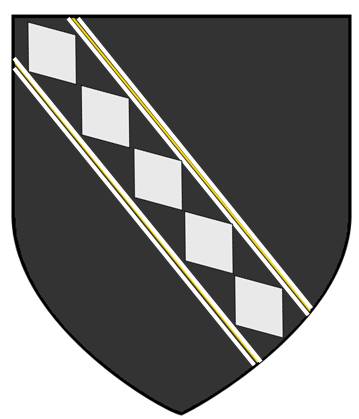
The Yorkshire branch of the Anglo-Norman de Brus family was based in Skelton in the Langbaurgh wapentake, but it also held land in Pickering in the 1100s. A branch of the de Brus family shared the R-P312 haplogroup in c2700 BC with the Pickerings of County Durham (Pickerings of Brancepeth 1, Pickerings of Brancepeth 2 and Pickerings of Auckland St. Andrew), who are believed to be descendants of the Killington Pickerings. Despite the distance in genealogical time, historians believe that the de Brus and Killington families are related. The first Killington Pickering to take the name “de Pickering” was William, when he moved to Westmorland in about 1250 to manage part of the vast holdings that had been granted to the de Bruses by King William I. The de Brus family had a policy of appointing junior members to support it as tenants, clerics or administrators in order to preserve the unity and power of the lordship. For this reason Pickerings can also be found elsewhere where the de Bruses had holdings. The officials William and John Pickering, who committed offences in the Langbaurgh wapentake in the 1270s, were probable relatives of the Killington Pickerings, as were possibly the Pickerings who settled in Bucks County, PA, in the early 1700s. Documentary evidence points to the Puckerings (Puckerings of Flamborough and offshoots) being another sub-branch of the Killington Pickerings. They rose to prominence in the 16th century, at about the same time as they adopted the alternative spelling of the name, and were often found in the areas of Yorkshire where the Greystokes had holdings. (See the Pickerings of Durham, the Pickerings of Bucks Co., PA, and the Puckerings on the table below.)
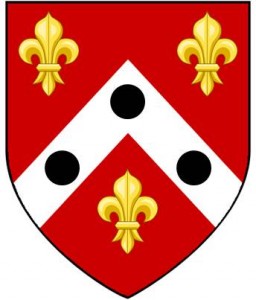
The Pickerings of the North York Moors (Pickerings of Hackness 1 and Pickerings of Hackness 2) and the Pickerings of Cumberland form another broad cluster, along with the genetically more distant Pickerings of Oswaldkirk. The North York Moors and Cumberland Pickerings shared the R-Z301 haplogroup in c2500 BC, whereas the Oswaldkirk Pickerings had already branched off by c2800 BC, and they would share the the R-Z375 haplogroup with the ancient Allen family of England and Scotland as recently as 150 BC. Circumstantial evidence suggests that the Pickerings of Barlby are an offshoot of the Oswaldkirk family, one of their number establishing a Pickering sub-branch in Worcestershire in the late 17th century. (See the Pickerings of the N. York Moors, the Pickerings of Cumberland and the Pickerings of Oswaldkirk on the table below.)
Though Pickerings had already established themselves in the West Riding and Lancashire, the name undoubtedly became more widespread as a result of the industrial revolution, and it was the opening up of North America, the Antipodes and South Africa that took it beyond the shores of Britain. Added to this is the incontestable fact that the Pickerings were prolific and my own observations suggest that many of those who survived childhood lived long lives.
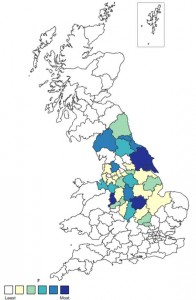 | 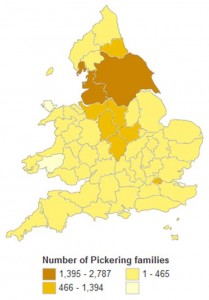 | 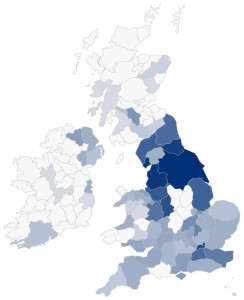 | 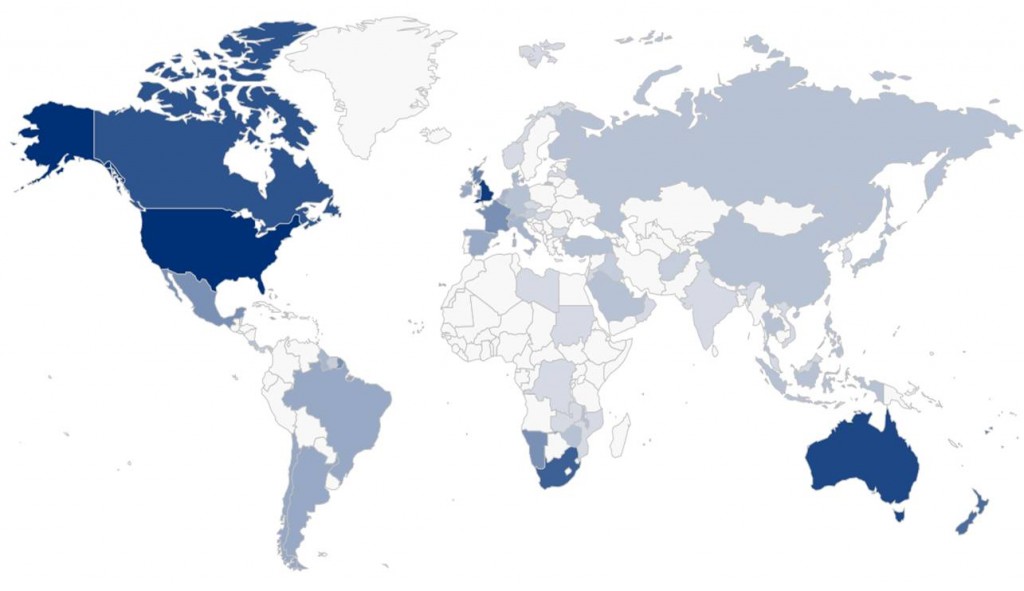 |
Sources:
A History of British Surnames, Richard Mckinley: https://books.google.fr/books?id=RyuPAwAAQBAJ&pg
https://en.wikipedia.org/wiki/Human_Y-chromosome_DNA_haplogroup
The Brus Family in England and Scotland, 1100-c1290, Dr. Ruth Margaret Blakely: http://etheses.dur.ac.uk/1594
Yorkshire Hundred and Quo Warranto Rolls 1274-1294, pp. 100-101, Pr. Barbara English: https://archive.org/details/YASRS151/page/100

